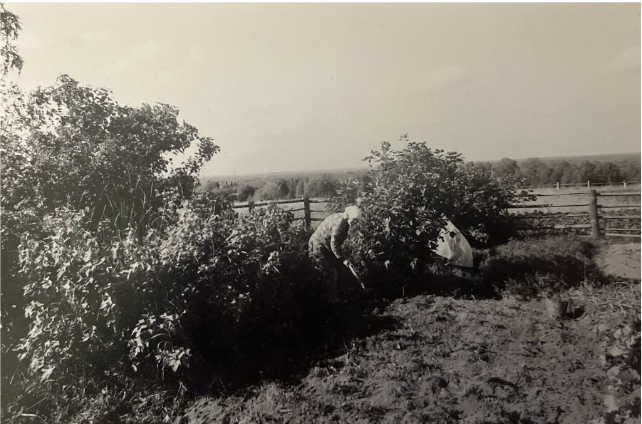Women’s Cultivation Practices in Post-Socialist Rural Contexts

(Working Title)
Artistic PhD Research, 2023–ongoing
This practice-based PhD research by Nika Grigorian explores rural cultivation practices of women in post-socialist contexts—specifically in Armenia, the Komi Republic (Russia), and East Germany. The project investigates how women’s agricultural labor functioned as a strategy for survival, knowledge transmission, and collective resilience during the transitional period from 1989 to 1999.
Grounded in autobiographical and autoethnographic methodologies, the research traces family histories across three regions, connecting the experiences of Grigorian’s grandmothers with broader histories of women's work in rural communities. Through artistic fieldwork, oral history, publishing, and curatorial strategies, the project approaches cultivation as a feminist, ecological, and decolonial form of collective knowledge production.
Research Questions
– What knowledges and epistemic agencies are embedded in women's cultivation practices in post-socialist rural contexts?
– How can these practices inform contemporary artistic methodologies and collective cultural production?
Methodology
The project combines artistic and ethnographic methods, including:
• Oral history and narration-based interviews
• Participatory action research
• Autobiographical and archival material
• Video/audio documentation and visual ethnography
• Zine-making and collective publishing
• Workshops, exhibitions, and public art mediation
The theoretical framework draws on ecofeminist and Marxist feminist perspectives (Maria Mies, Vandana Shiva, Alexandra Kollontai), intersectional positionality (Adrienne Rich), and collective strategies from contemporary art practices (e.g., ruangrupa’s lumbung and the work of Myvillages).
Artistic Outcomes
• Living Repository – a growing multimedia archive of rural women’s knowledge
• Installations – multichannel film, voice recordings, and experimental visual works
• Zines – collaborative publications developed with women in the research regions
• Workshops – community-based formats for knowledge sharing and memory work
• Curated Exhibition – a rural exhibition format to be developed in collaboration with participants post-dissertation
Relevance
The project addresses the historical invisibility of rural women’s contributions in the post-socialist transition and their ongoing marginalization in public discourse. It emphasizes the importance of land-based practices as feminist strategies for care, sustainability, and alternative knowledge systems. The research contributes to debates in gender studies, contemporary art, rural sociology, and decolonial theory.
Fieldwork
The first phase of fieldwork was conducted in the Komi Republic (Russia) in 2024. Thirteen interviews were carried out—primarily with women gardeners—alongside exhibitions in local libraries and a soil memory workshop. These methodologies will be extended to Armenia and East Germany with a strong focus on local collaboration and sensitivity to context.
Supervision:
Prof. Dr. Asli Serbest & Åsa Sonjasdotter
Artistic PhD Program, Hochschule für Künste Bremen / HDK-Valand, University of Gothenburg